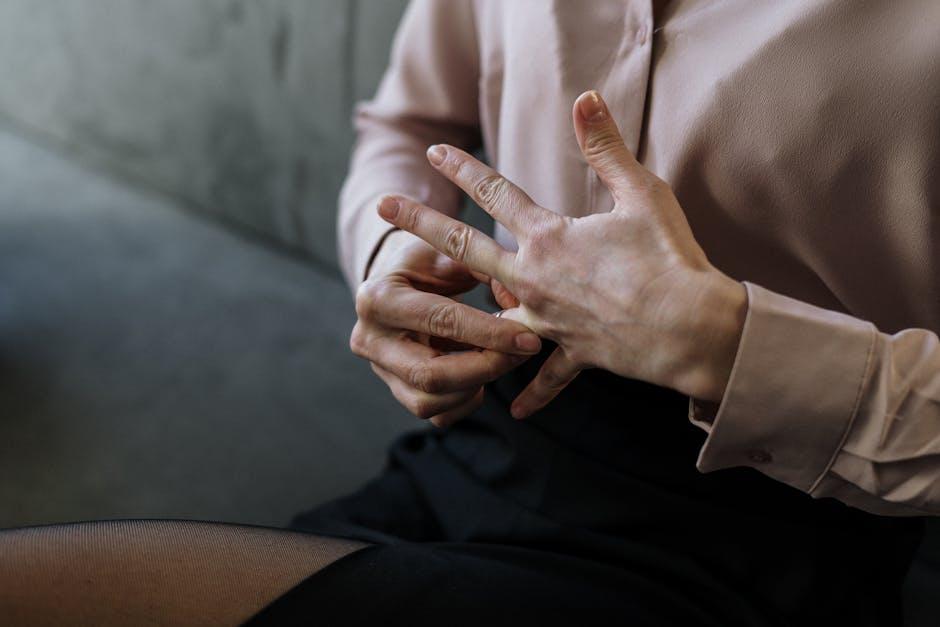In the intricate dance of human connection, emotional independence often emerges as a key player, subtly influencing the rhythm and harmony of relationships. As we navigate the complexities of love and companionship, the question arises: Is emotional independence truly necessary for a healthy relationship? This article delves into the nuanced interplay between autonomy and intimacy, exploring whether standing strong as individuals enhances or hinders the bonds we cherish. Through insights from psychology, real-life stories, and expert opinions, we unravel the threads of emotional independence to uncover its role in the tapestry of modern relationships. Join us on this exploration of hearts and minds, where balance is both an art and a necessity.
Navigating the Balance: Emotional Independence in Partnerships
Striking the right equilibrium between closeness and autonomy is a crucial aspect of thriving partnerships. Emotional independence doesn’t imply detachment; rather, it involves nurturing a robust sense of self while remaining deeply connected to your partner. This balance empowers individuals to contribute more meaningfully to their relationships, as they bring their full selves to the table.
- Self-awareness: Understanding your own emotions helps in communicating effectively and resolving conflicts.
- Resilience: Independent individuals can navigate challenges without solely relying on their partners for emotional stability.
- Personal growth: Encouraging personal interests and goals enriches the partnership with diverse experiences.
In essence, cultivating emotional independence fosters a partnership where both individuals thrive together, yet maintain their unique identities.

Understanding Emotional Independence: Key to a Thriving Relationship
Achieving emotional independence means cultivating a strong sense of self that is not overly reliant on a partner for validation or fulfillment. This form of independence encourages personal growth and self-awareness, allowing individuals to bring their best selves into a relationship. When both partners possess emotional independence, they can support each other without losing their own identity.
Here are some benefits of fostering emotional independence in relationships:
- Improved Communication: With a clearer understanding of personal emotions, individuals can express themselves more effectively.
- Reduced Conflicts: Emotional independence helps in managing personal insecurities, leading to fewer misunderstandings.
- Increased Trust: When both partners maintain their individuality, trust is naturally strengthened.
- Balanced Dependency: Partners can rely on each other without feeling overwhelmed by neediness.
Embracing emotional independence not only nurtures personal well-being but also lays a solid foundation for a thriving, balanced partnership.

Cultivating Emotional Independence: Practical Steps for Couples
Emotional independence within a relationship fosters personal growth and enhances mutual respect. It’s about maintaining a sense of self while sharing your life with another. Here are some practical steps to nurture this essential quality:
- Self-awareness: Engage in regular self-reflection to understand your emotions and triggers. Journaling or meditation can be valuable tools in this process.
- Communication: Open and honest dialogue with your partner is key. Share your feelings without expecting them to solve your emotional challenges.
- Boundaries: Establish clear personal boundaries to ensure both partners have space to pursue individual interests and passions.
- Support Network: Cultivate relationships outside your partnership. Friends and family provide different perspectives and emotional support.
By embracing these steps, couples can achieve a balanced relationship where each partner thrives individually and together, creating a foundation of mutual respect and shared growth.

Fostering Mutual Growth: Recommendations for Emotional Autonomy
In the pursuit of emotional autonomy within relationships, fostering mutual growth becomes essential. This involves creating an environment where both partners can thrive individually and collectively. Here are some recommendations to cultivate this balance:
- Open Communication: Establish a safe space where feelings and thoughts can be shared without judgment. This transparency builds trust and understanding.
- Personal Time: Encourage each other to pursue individual interests and hobbies. This not only enriches personal growth but also brings fresh perspectives to the relationship.
- Set Boundaries: Clearly defined boundaries help maintain personal space and autonomy, ensuring that both partners feel respected and valued.
- Support Each Other’s Goals: Celebrate achievements and provide support during challenges. This nurtures a partnership where both feel encouraged to pursue their aspirations.
By embracing these practices, couples can achieve a harmonious balance between individuality and togetherness, leading to a more fulfilling relationship.




